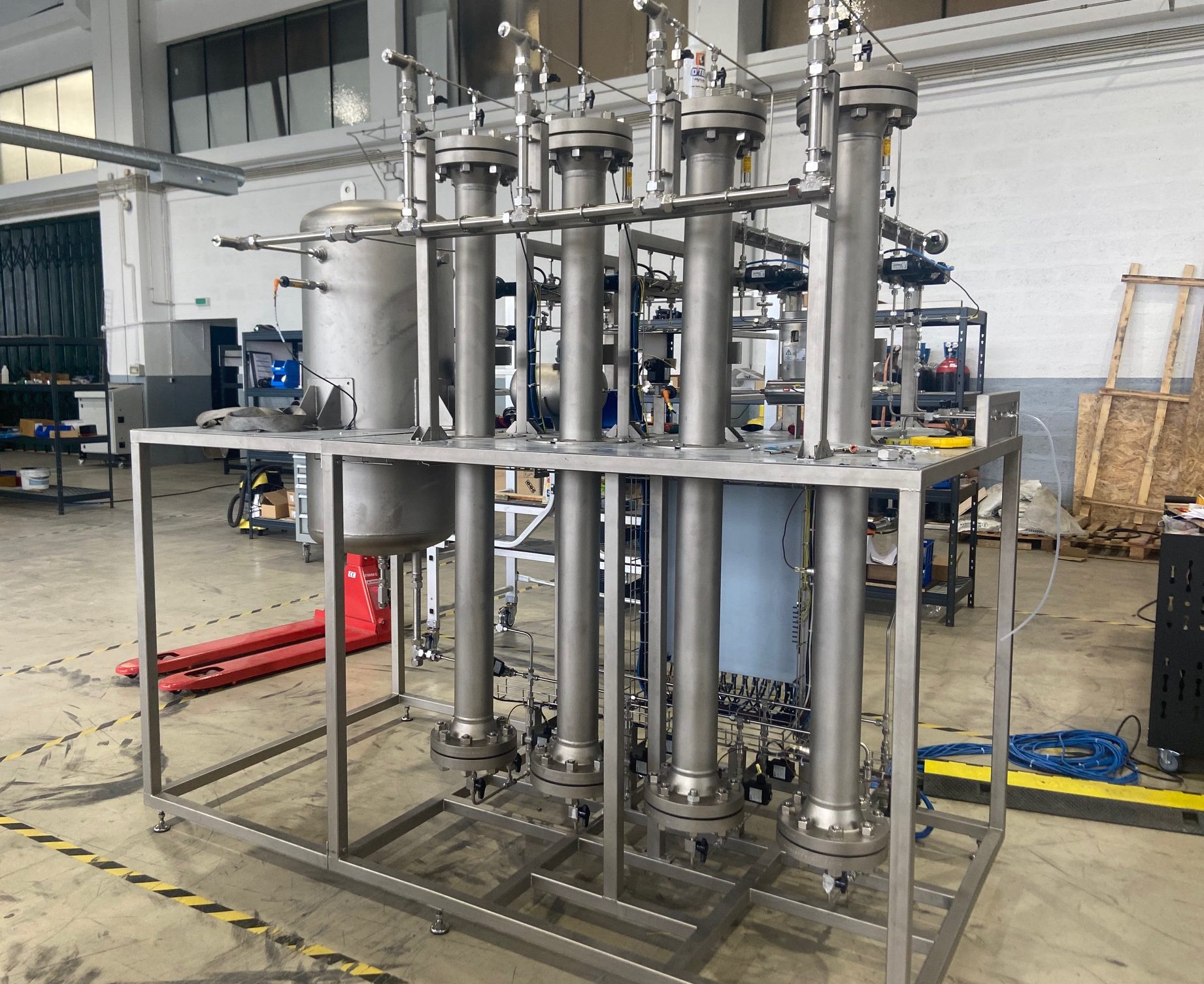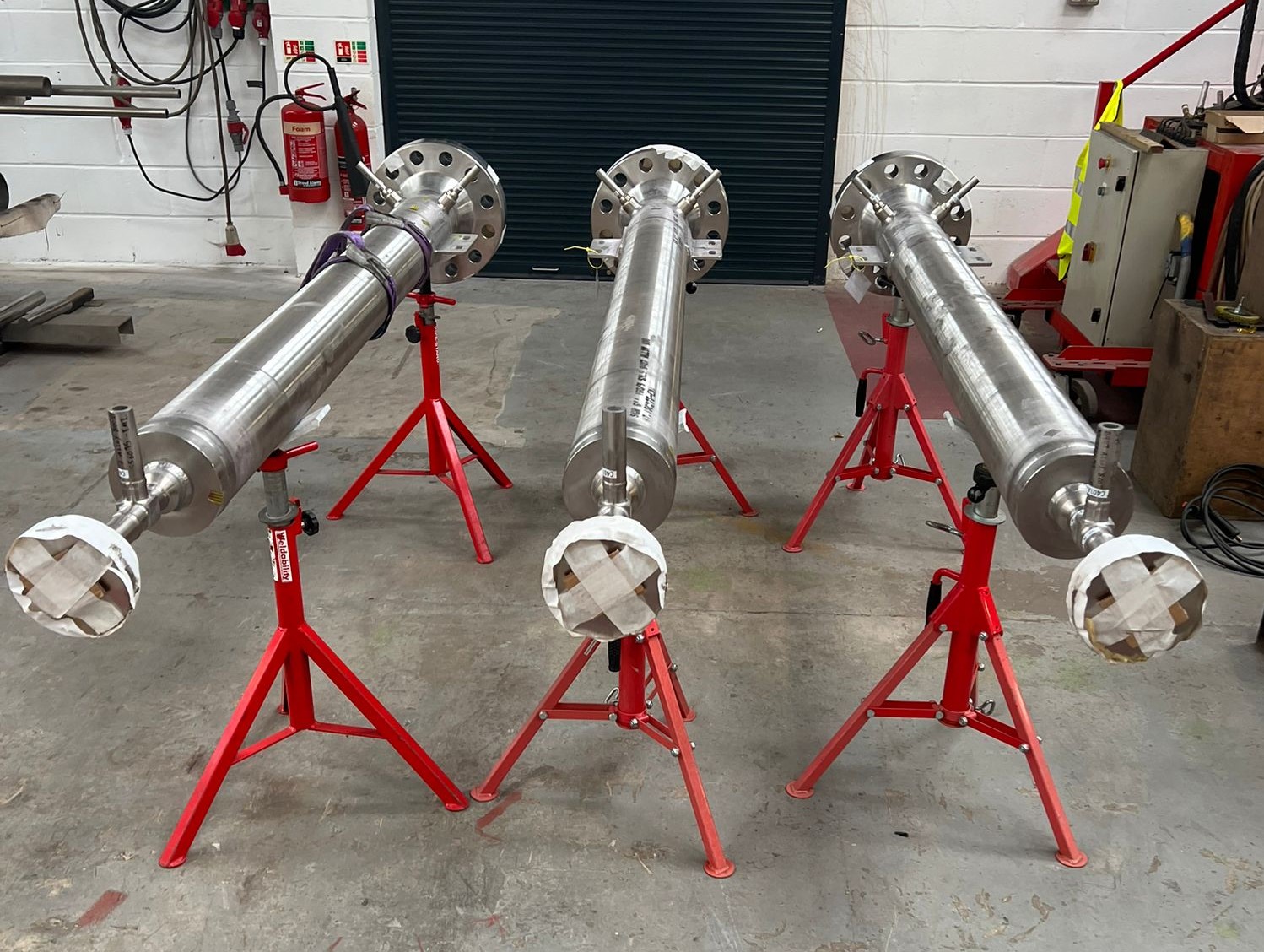
Recycle Phase 2
Phase 2 of the RECYCLE project will see the RECYCLE consortium construct and test a fully integrated innovative hydrogen production pilot unit at The University of Manchester, demonstrating a new technology to produce syngas and pure hydrogen with nearly zero direct carbon dioxide emissions.

The final demonstration is planned for the second half of 2024 in the pilot area of the James Chadwick Building at The University of Manchester.

This £5.1 million collaborative project funded by the Department for Energy Security and Net Zero’s Net Zero Innovation Portfolio (NZIP), also involves five world-leading industrial partners in the area of engineering for sustainable development: Johnson Matthey, TotalEnergies OneTech, Kent, Helical Energy and Element Energy (an ERM Group Company).
Progress so far
The RECYCLE technology has successfully been demonstrated under simulated conditions at laboratory scale at the University of Manchester. Currently, a new demonstration plant is under construction by Helical Energy, with the aim of reaching Technology Readiness Level 6 (TRL6) by the project’s end. This plant is designed to continuously produce 0.8 kg/h of hydrogen and capture 7 kg/h of pure carbon dioxide from natural gas. Notably, it includes critical components such as a syngas generation unit, a Water Gas Shift Reactor (WGSR), and a Pressure Swing Adsorption (PSA) system. In addition to the construction efforts, the project is also expanding research into industrial applications, exploring market opportunities, and collaborating with TotalEnergies and KENT plc on large-scale reactor design and techno-economic analysis.

Figure 1: First skids of the rig have been manufactured
Challenges and Opportunities
- The complexity of the demonstration plant posed difficulties, particularly in sourcing the required instrumentation and process components.
- The plant’s size is too large for conventional lab equipment, yet too small for industrial-scale units that would mitigate these supply chain issues.
- Through collaboration with multiple suppliers and the combined expertise of teams at Manchester and Helical Energy, these obstacles were successfully overcome, ensuring the projects progress.
Once operational, the project will enter its critical demonstration phase, where high performance is anticipated. If successful, this would pave the way for pre-commercial scale testing in industrial settings, partnering with end-users who require hydrogen or low-carbon syngas to decarbonise their operations.
The RECYCLE technology shows potential for various industries, including chemical production and the high-temperature heat generation required in the glass, ceramic, and metal sectors. Looking ahead, integrating this technology across such industries could play a significant role in advancing global decarbonisation efforts.

Figure 2: Chemical looping reactors manufactured by Helical Energy

